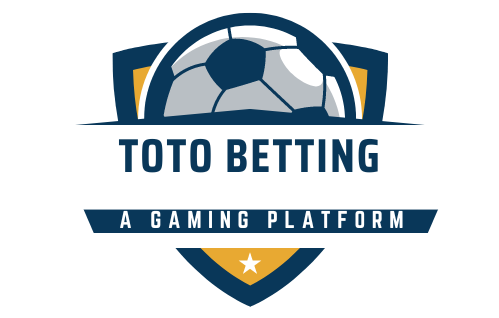
The digital age has revolutionized the way we engage with various aspects of life, including entertainment and leisure activities. Among the most significant transformations is the evolution of the gambling industry, particularly online betting. With the convenience of accessing betting platforms from the comfort of one’s home, coupled with the allure of potentially lucrative returns, online betting has surged in popularity worldwide.
However, this rapid expansion has brought forth concerns regarding the security and integrity of online betting platforms. Instances of fraud, money laundering, and match-fixing have underscored the need for robust regulatory frameworks and stringent measures to safeguard users and maintain the credibility of the industry. In response to these challenges, legislative bodies and regulatory authorities have enacted new legal measures aimed at enhancing online betting security. In this comprehensive exploration, we delve into the multifaceted impact of these measures on the landscape of online betting security.
Regulatory Frameworks: Nurturing a Secure Environment
Regulatory frameworks serve as the cornerstone of online betting security, providing a structured approach to oversight and enforcement. These frameworks outline standards and guidelines that operators must adhere to, ensuring compliance with legal requirements and industry best practices. New legal measures often involve the introduction or enhancement of regulatory frameworks, empowering regulatory bodies to exercise oversight and enforce compliance within the industry. By establishing clear rules and accountability mechanisms, regulatory frameworks foster a secure and transparent betting environment for users.
Licensing Requirements: Gatekeeping Access to Integrity
A fundamental aspect of ensuring online betting security is the implementation of stringent licensing requirements for operators. These requirements serve as a gatekeeper, allowing only reputable and compliant operators to participate in the market. To obtain a license, operators must undergo thorough scrutiny, demonstrating their financial stability, commitment to fair gaming practices, and capacity to protect user data. By obtaining a license, operators commit to upholding these standards, thereby fostering trust and confidence among users in the integrity of the platform.
Identity Verification: Fortifying Against Fraudulent Activities
Identity verification measures play a crucial role in mitigating risks associated with fraudulent activities in online betting. New legal measures may mandate operators to implement robust identity verification processes, requiring users to provide accurate identification documentation during registration. These measures serve multiple purposes, including preventing underage gambling, verifying the legitimacy of users, and deterring fraudulent activities such as identity theft and account manipulation. By ensuring the accurate identification of users, operators can bolster security measures and cultivate a safer betting environment.
Anti-Money Laundering (AML) Compliance: Safeguarding Financial Integrity
The online betting industry is inherently susceptible to exploitation by money launderers seeking to conceal the origins of illicit funds. To address this threat, new legal measures often include provisions for enhanced AML compliance within online betting platforms. These measures may entail the implementation of robust transaction monitoring systems, stringent customer due diligence procedures, and timely reporting of suspicious activities. By bolstering AML compliance, operators can mitigate the risks associated with money laundering activities, thereby safeguarding the financial integrity of their platforms and preserving the reputation of the industry.
Responsible Gambling Initiatives: Prioritizing Player Welfare
Promoting responsible gambling practices is imperative in addressing the social and ethical implications of online betting. New legal measures may require operators to implement responsible gambling initiatives aimed at mitigating the risks of problem gambling and protecting vulnerable users. These initiatives encompass a range of measures, including self-exclusion programs, deposit limits, access to support resources, and proactive intervention measures for users exhibiting signs of excessive gambling behavior. By prioritizing player welfare, operators demonstrate a commitment to ethical business practices and contribute to the overall well-being of their user base.
Data Protection and Privacy: Safeguarding User Information
The collection and processing of sensitive user data in online betting platforms underscore the importance of robust data protection and privacy measures. New legal measures may include provisions for safeguarding user information, such as encryption protocols, strict access controls, and adherence to privacy regulations like the General Data Protection Regulation (GDPR). By prioritizing data security and privacy, operators can instill confidence among users regarding the confidentiality and integrity of their personal information, thereby enhancing trust and credibility in the platform.
Fair Gaming Standards: Upholding Integrity and Transparency
Central to the credibility of online betting platforms is the assurance of fair gaming standards and transparent practices. New legal measures may mandate operators to implement measures such as random number generators (RNGs), independent audits, and transparent disclosure of odds calculation methodologies. These measures aim to ensure the fairness of games and betting outcomes, thereby fostering trust and confidence among users in the integrity of the platform. By upholding fair gaming standards, operators demonstrate a commitment to transparency and ethical conduct, ultimately contributing to the sustainability of the industry.
Combatting Match-Fixing and Fraud: Preserving the Integrity of Sports Betting
Match-fixing and fraudulent activities pose significant threats to the integrity of online sports betting markets. New legal measures may involve collaborative efforts between regulatory bodies, law enforcement agencies, and sports organizations to detect and combat such nefarious activities. These efforts may include the implementation of sophisticated monitoring systems, intelligence sharing mechanisms, and disciplinary measures against individuals involved in match-fixing schemes. By adopting proactive measures to combat match-fixing and fraud, operators can safeguard the integrity of sports betting markets and uphold the credibility of the industry as a whole.
Technological Innovations: Leveraging Technology for Enhanced Security
Technological advancements play a pivotal role in enhancing online betting security and resilience against evolving threats. New legal measures may encourage operators to adopt innovative technologies such as blockchain, artificial intelligence (AI), and biometric authentication to fortify security measures and deter fraudulent activities. Blockchain technology, for instance, can provide immutable and transparent transaction records, reducing the risk of tampering or manipulation. Similarly, AI-powered algorithms can detect patterns indicative of fraudulent behavior, enabling operators to take proactive measures to mitigate risks. By leveraging technology, operators can stay ahead of emerging threats and enhance the overall security posture of their platforms.
International Cooperation and Standardization: Harmonizing Regulatory Practices

Given the global nature of online betting, international cooperation and standardization are essential for harmonizing regulatory practices and addressing cross-border challenges. New legal measures may promote collaboration between jurisdictions, industry stakeholders, and international organizations to establish common standards and best practices. Initiatives such as information sharing agreements, joint enforcement actions, and mutual recognition frameworks facilitate the exchange of knowledge and expertise, thereby enhancing the effectiveness of regulatory efforts. By fostering international cooperation and standardization, operators can navigate regulatory complexities more effectively and uphold uniform standards of security and integrity across jurisdictions.
The implementation of new legal measures signifies a proactive approach to enhancing online betting security and safeguarding the interests of users. Through robust regulatory frameworks, stringent licensing requirements, and proactive measures against illicit activities, stakeholders are working collaboratively to foster a secure and transparent betting environment. As the online betting industry continues to evolve, ongoing collaboration, innovation, and adherence to ethical standards will be crucial in addressing emerging threats and upholding the integrity of online betting platforms. By prioritizing user welfare, data protection, and fair gaming practices, operators can build trust and confidence among users, ensuring the long-term sustainability and credibility of the industry.
